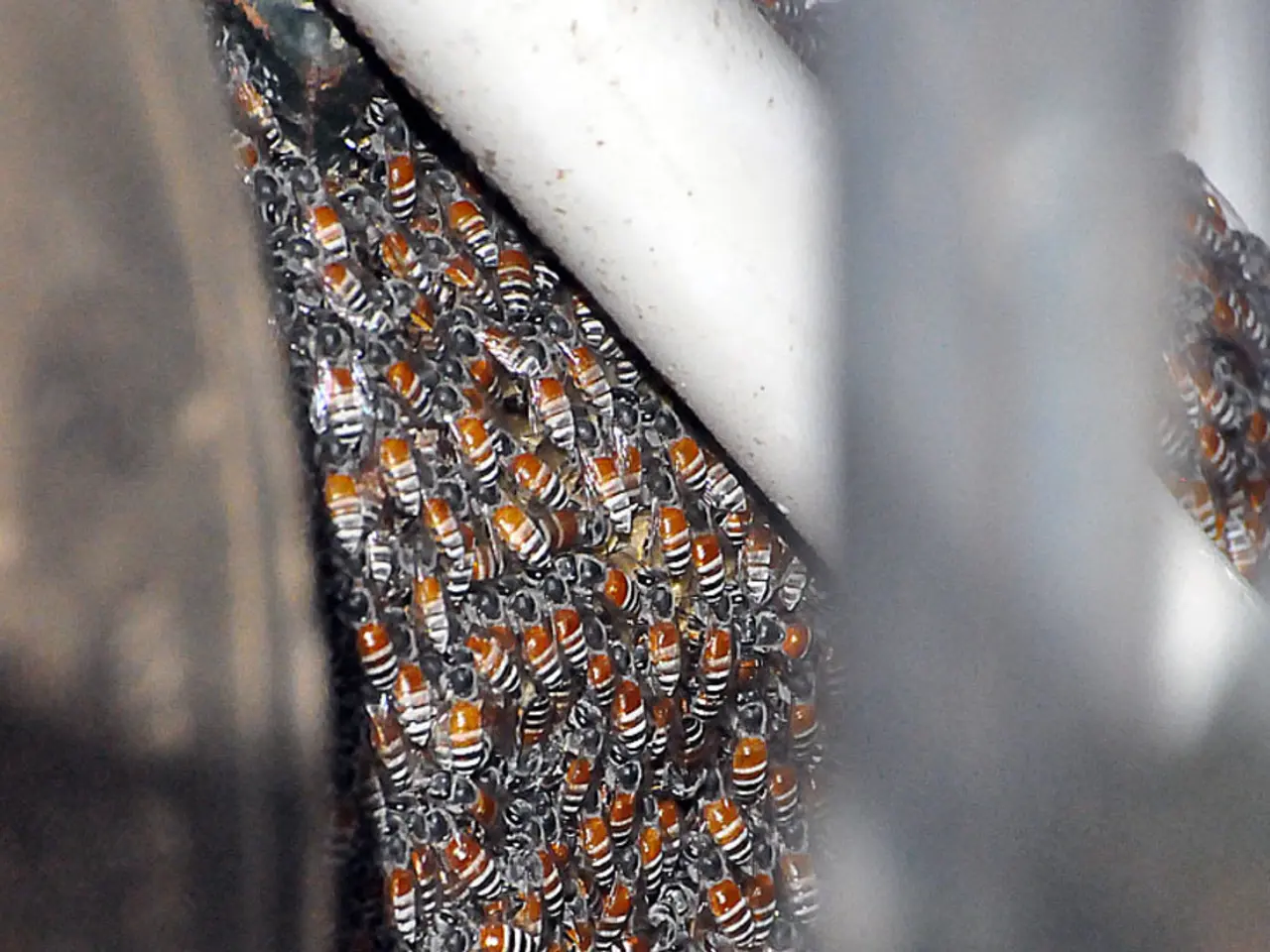Harmful Chemicals in Commercial Produce and DIY Garden Supplies: Threat to Bees and Consumers
Gardening enthusiasts often spruce up their balconies and gardens with flowering plants, many of which are marketed as bee-friendly to attract pollinators like bees, bumblebees, and butterflies. However, these advertised bee-friendly plants might not be as safe as you'd think.
A shocking study by the German Federal Association for the Environment and Nature Conservation (BUND Lower Saxony) reveals that a vast majority of these plants are heavily contaminated with pesticides. Out of 85 plants tested, a mere 4% were free of pesticides.
The research team purchased 85 plants from various sources, including garden centers, hardware stores, and supermarkets. The plants included popular options like lavender, butterfly bush, delphinium, rock cress, and Iceland poppy. Each sample underwent tests for around 600 individual substances.
The results were alarming. An astounding 82 out of 85 plants contained pesticides! More than half of these contained toxic ingredients harmful to wild bees, butterflies, and other insects. Thirty-five plants had pesticides that have been banned in the EU for years, such as bifenthrin and diphenylamine. And 33 plants contained chemicals like epoxiconazole and propiconazole, which are potential carcinogens or harmful to human fertility.
Pesticides are absorbed by insects through nectar and pollen, turning what we thought was a helpful gesture into a deadly trap. Even culinary herbs like rosemary and thyme tested positive for residues of these health-harming chemicals.
So, what's the solution? It's best to buy plants with a bio seal from trusted local nurseries or grow them from seeds. Avoid plants from supermarkets and hardware stores. Unfortunately, the specific names of these pesticide-contaminated plants aren't mentioned in the study. For the exact list, consulting the official BUND Lower Saxony publication or their website would be necessary. This revelation is a wake-up call - buying plants thinking you're helping wildlife could actually be hurting them instead.
- The study by the German Federal Association for the Environment and Nature Conservation (BUND Lower Saxony) found that a significant number of plants marketed for health-and-wellness purposes, such as lavender and thyme, are contaminated with pesticides that can be harmful to insects like bees and humans.
- The alarming findings suggest that fitness-and-exercise enthusiasts and gardeners should be cautious about the plants they purchase, as more than half of the tested plants contained toxic ingredients harmful to wild bees, butterflies, and other insects.
- In light of this research, it's crucial for environmental-science advocates to educate themselves on safer alternatives and seek out trusted sources like local nurseries or seeds for their health-and-wellness plant purchases, as these commercial sources often harbor contaminated plants.








